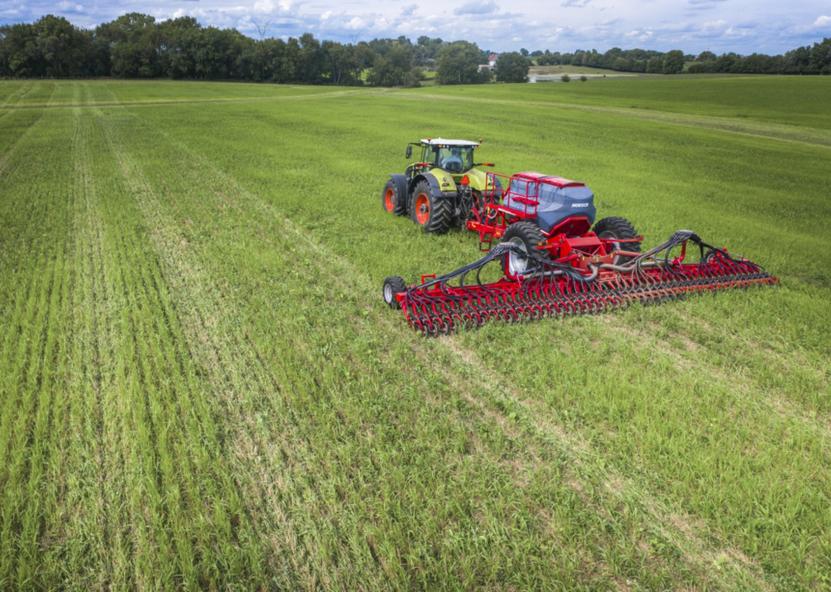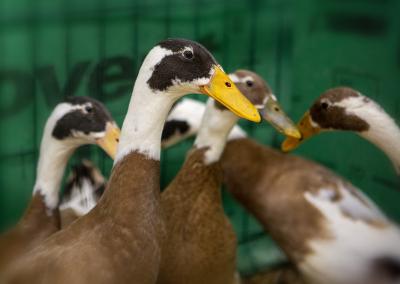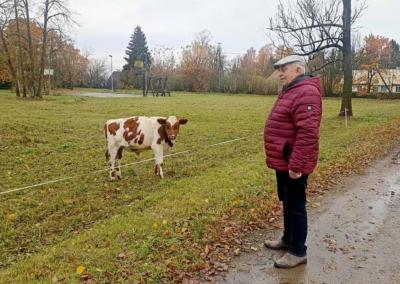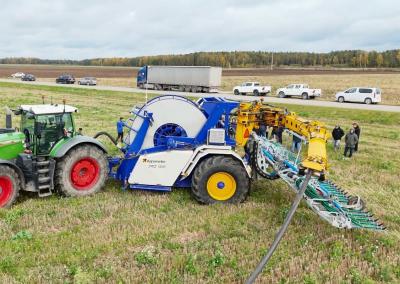Last season was not a happy one for farmers - both nature and prices were bad
„Difficult, unfavourable and sad“, – this is how Vytautas Patinskas, the chairman of the Alytus Farmers' Union, described the end of the season.
According to Vytautas Patinskas, the first challenges appeared already in spring. There was a period when, after the severe spring frosts, livestock farmers did not even have a place to raise their animals, while cereal farmers in many places froze their crops.
Winter oilseed rape was particularly affected by the spring frost. They started growing later, but did not produce any more crops. The average rapeseed yield for 2025 in Dzūkija is just under 2 tonnes per hectare. Some fields did not yield a tonne per hectare, while on the Simno side, where the growing conditions were more favourable, 3 tonnes were produced. There were also some fields where farmers did not cultivate because it was not worth it. I myself left some 5 hectares uncultivated. The field flowered, but the late flowering did not produce grain," the farmer stated.
Winter wheat is a different situation. The wheat yielded well without frost, even though it looked like it would not do any good in the spring. The rains and cool weather that followed the frosts were a saving grace. If it had been rainy and warm weather, the diseases would not have been avoided. The wheat yield was normal at 5-9 tonnes per hectare. Farmers were pleased that the quality of the grain was very good. Unfortunately, the very low farm-gate prices did not allow them to enjoy a good result.
„Spring cereals also yielded the usual yields, such as barley – 6– 7 tonnes per hectare“, – said V. Patinskas.
„Winter wheat dominates in our district. About a third of the fields were occupied by oilseed rape. Now this situation is changing. Many farmers are reducing the area under this crop, looking for alternatives to sow instead, or planning to take a break and not grow oilseed rape at all next year. The reason is that there are no pesticides that can effectively protect the crop against disease. In my opinion, the spread of diseases may also have been influenced by poor crop rotation.
The harvesting of the maize crop will be quite difficult and delayed because of the difficulty in entering the fields due to excess moisture. For the time being, maize is mainly grown as a rotational crop. Their areas are gradually expanding at the expense of oilseed rape," said the head of the Alytus Farmers' Union.
V. Patinskas welcomed the start of soya cultivation on one farm. Three weeks ago, the fields looked very beautiful and the view was optimistic, so next year the farmer, who has sown soya beans, is thinking of expanding the area.„I would describe the situation in the livestock sector as consistently bad. The biggest challenge right now is blue tongue disease. This disease has not yet been diagnosed in our district, but it has already been identified in the neighbouring district of Prienai. We are optimistic that the weather has cooled down and that the animals will be in their stables and that the mosquitoes capable of spreading the virus will not fly. Concerns about the spring remain and remain , – said V. Patinskas.
After the dissolution of the Lithuanian Farmers' Union's „Dzūkija farmer's“ chapter, farmers in Alytus district have created a new – Union of Alytus Farmers. The organisation, now in its second year, has over 50 members. Its leader, V. Patinskas, is happy that farmers from other districts are joining the organisation. „So far, it has been difficult to implement the plans, but things are moving forward, albeit slowly, and farmers are becoming more active, &ndashas said. Patinskas.















































































































